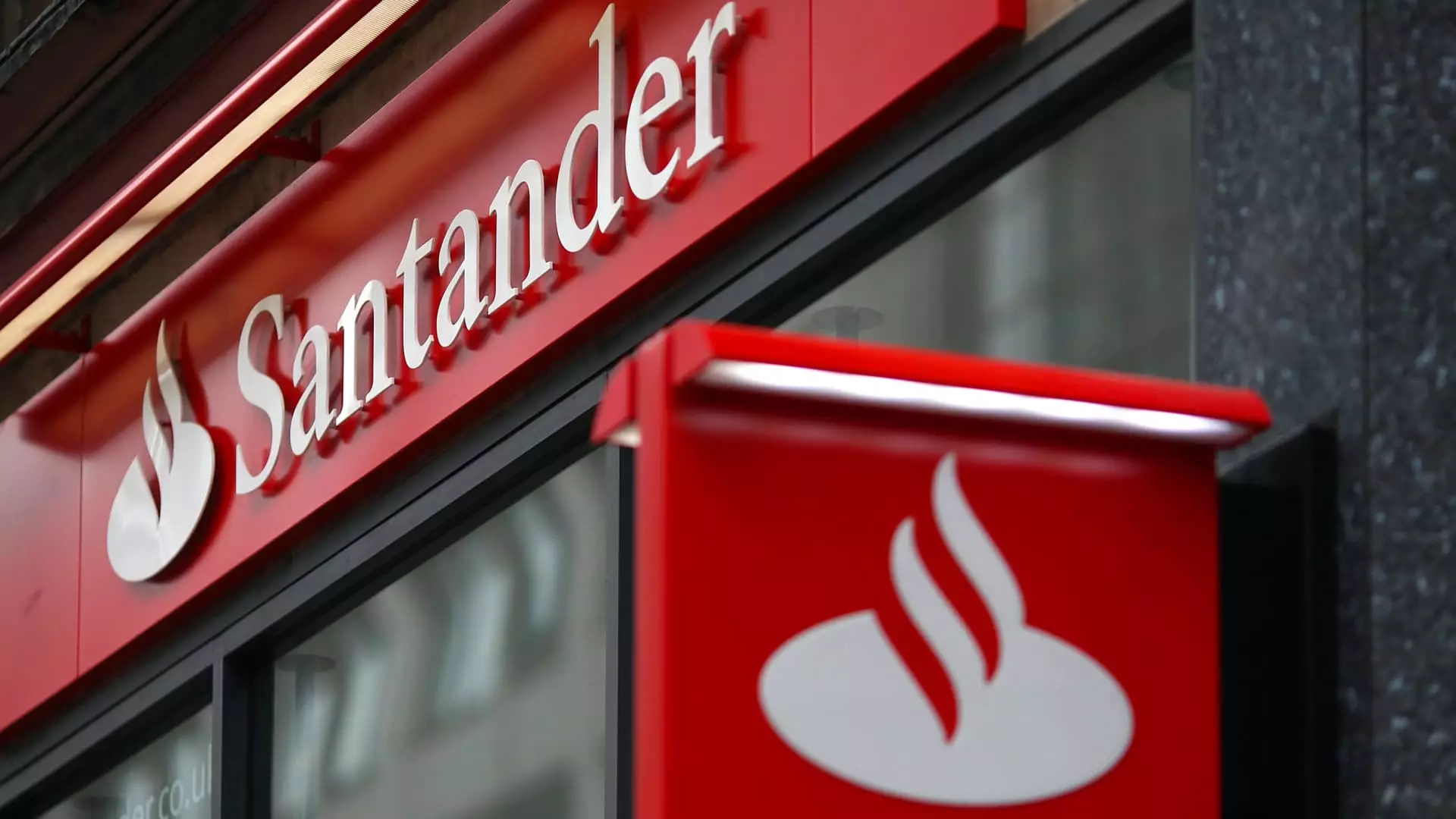Santander’s recent announcement to acquire TSB for a staggering £2.65 billion has sent ripples through the financial world. While the deal promises a quick boost to Santander’s returns and signals a continued push into the lucrative UK market, it also exposes a critical debate: Is this Chinese-style expansion undermining the bank’s long-term resilience? From a centrist liberal vantage point, I see a pattern of aggressive growth that, while seemingly strategic in the short term, may ultimately threaten stability amidst an increasingly volatile financial landscape.
Historically, Santander has shown a robust appetite for acquisitions—buying Abbey National in 2004, and later, expanding significantly in Britain. Yet, the profitability of its British operations has recently declined sharply, with pre-tax profits plunging by 38% last year. These figures aren’t just numbers; they reflect deeper issues of slow growth, rising competition, and a failed integration strategy that appears more opportunistic than deliberate. Rather than fostering sustainable expansion, Santander’s move to swallow TSB feels more like a desperation play—an attempt to patch profitability gaps with an expensive acquisition rather than addressing the fundamental flaws in its UK operations.
The core concern lies in the bank’s apparent rush to diversify without adequately managing the risks involved. While executives emphasize the strategic importance of the UK—highlighting its size, stability, and currency advantages—there’s a troubling undercurrent of recklessness. Are these claims rooted in genuine strategic foresight, or are they simply distractions from underlying issues of declining profitability and waning market confidence? By focusing on short-term capital returns—aiming for over 20% on invested capital—Santander risks prioritizing immediate gains at the expense of long-term sustainability. This approach might generate momentary profits, but at what cost to operational integrity and reputation?
Market Dynamics and Political Crossfire
The narrative around this acquisition becomes even more complicated when viewed through the murky lens of Spanish political and economic tensions. Sabadell’s motivations for selling TSB seem driven not just by financial considerations but by a battle for control amidst hostile takeover threats from BBVA. The Spanish government’s involvement—limiting the merger’s integration timeline—further underscores how intertwined politics are with banking consolidation. This suggests that the deal isn’t purely about market efficiency but also a strategic move in a broader political game aimed at protecting regional interests and employment.
From a liberal-centrist perspective, this politicization raises serious concerns. When national governments intervene in corporate M&A to protect jobs or regional dominance, it often leads to distortions that hamper genuine market competitiveness. While safeguarding employment is vital, overly politicized interventions can entrench inefficient institutions or foster complacency. Santander’s move can be criticized as capitalizing on this political turbulence, leveraging market uncertainties to impose its own strategic agenda rather than genuinely enhancing service quality or financial stability.
Furthermore, the European Commission’s seeming neutrality—highlighting the importance of unimpeded banking sector consolidation—may be at odds with internal Spanish politics. The potential for protectionism and political interference risks turning a straightforward market transaction into a geopolitical chess game. Such interference, if sustained, could dampen investor confidence and exacerbate fragmentation in a sector already under stress from low-interest rates and rising bad loans.
Future Risks and Long-Term Implications
While Santander touts its acquisition as financially compelling and aligned with its diversification goals, all signs point toward a risky overextension. The UK, despite its perceived stability, presents unique challenges—regulatory complexity, stiff competition, and a consumer base increasingly sensitive to economic shocks. Relying heavily on acquisitions to boost returns might create a fragile high-wire act, especially in an era marked by economic uncertainties, political upheaval, and technological disruptions.
From a centrist liberal view, the key issue isn’t just about profitability but about responsible growth. Excessive focus on short-term gains tends to obscure the importance of sustainable practices, fair employment, and cautious integration. Santander’s aggressive expansion could lead to a cycle where short-term profits are prioritized over long-term stability, risking future public backlash if layoffs or service cutbacks are forced in the wake of mounting debts or market downturns.
Additionally, this deal seems strategically aimed at discouraging BBVA’s hostile takeover bid, serving as a defensive move rather than a bold step forward. While safeguarding its interests, Santander may be neglecting the broader market health by prioritizing corporate warfare over customer-centric banking or innovation. The result: an increasingly crowded and competitive Spanish banking sector that offers little room for new entrants or innovation, ultimately hurting consumers and workers alike.
In a broader sense, Santander’s current strategy reflects a perilous trend within global finance—where financial institutions chase immediate gains through mergers and acquisitions, often sacrificing resilience and social responsibility. It’s a risky game of high-stakes poker, where the house (the economy) could suffer if these playing cards fall apart. From a progressive liberal standpoint, this is a prime example of unchecked corporate hubris—an obsession with growth that may, in the long run, undermine the very stability and fairness that underpin a healthy economy.

